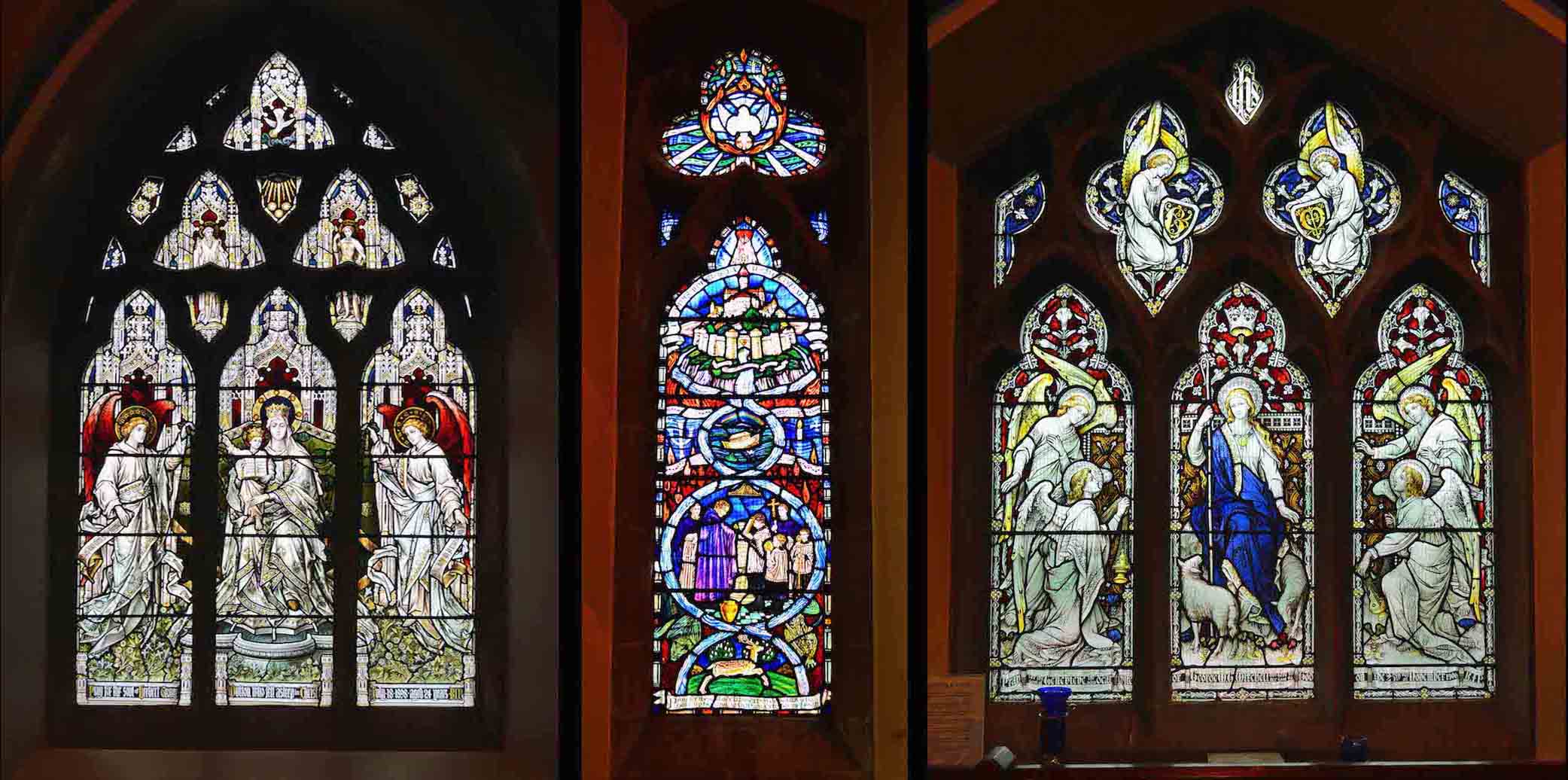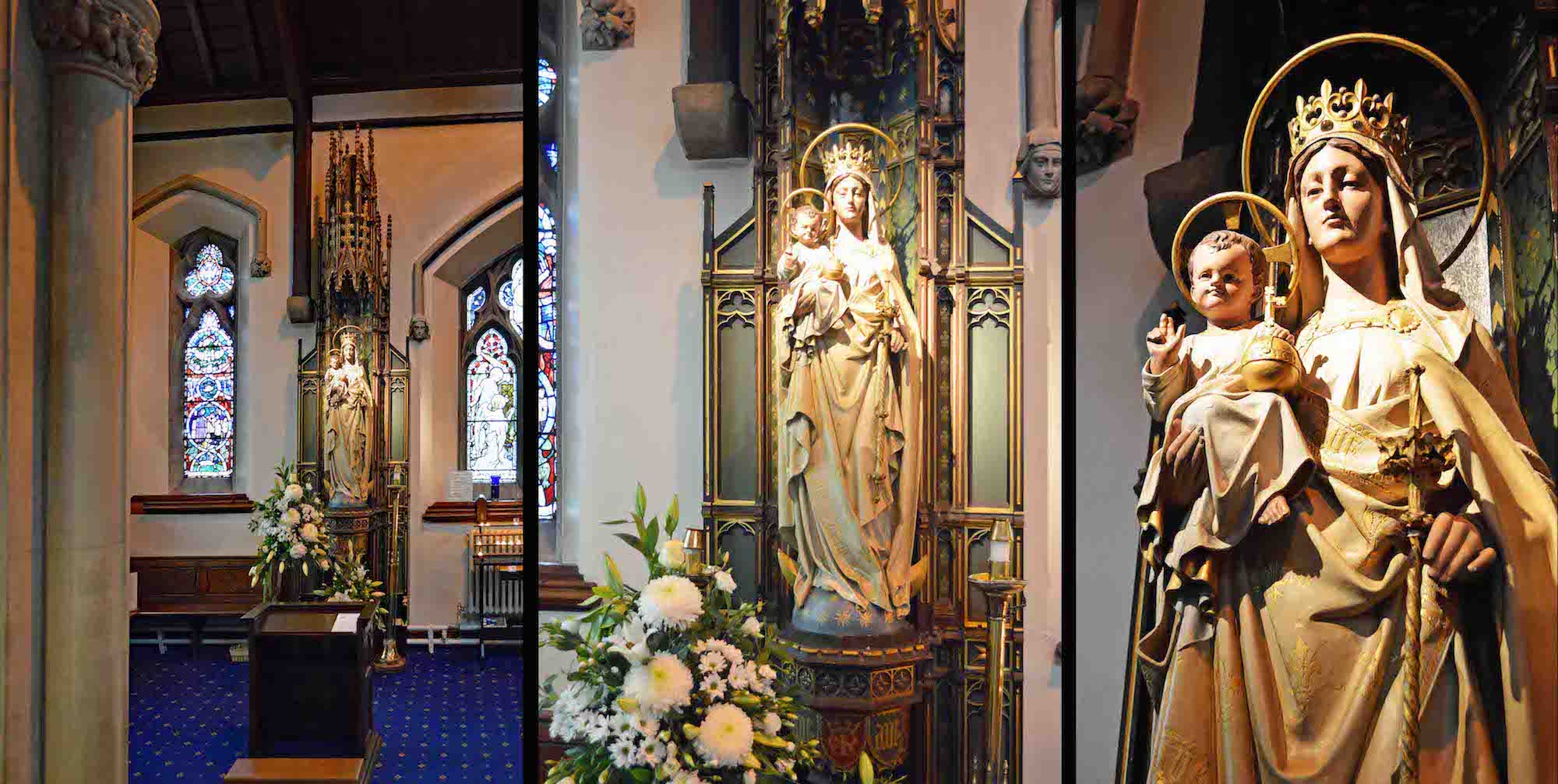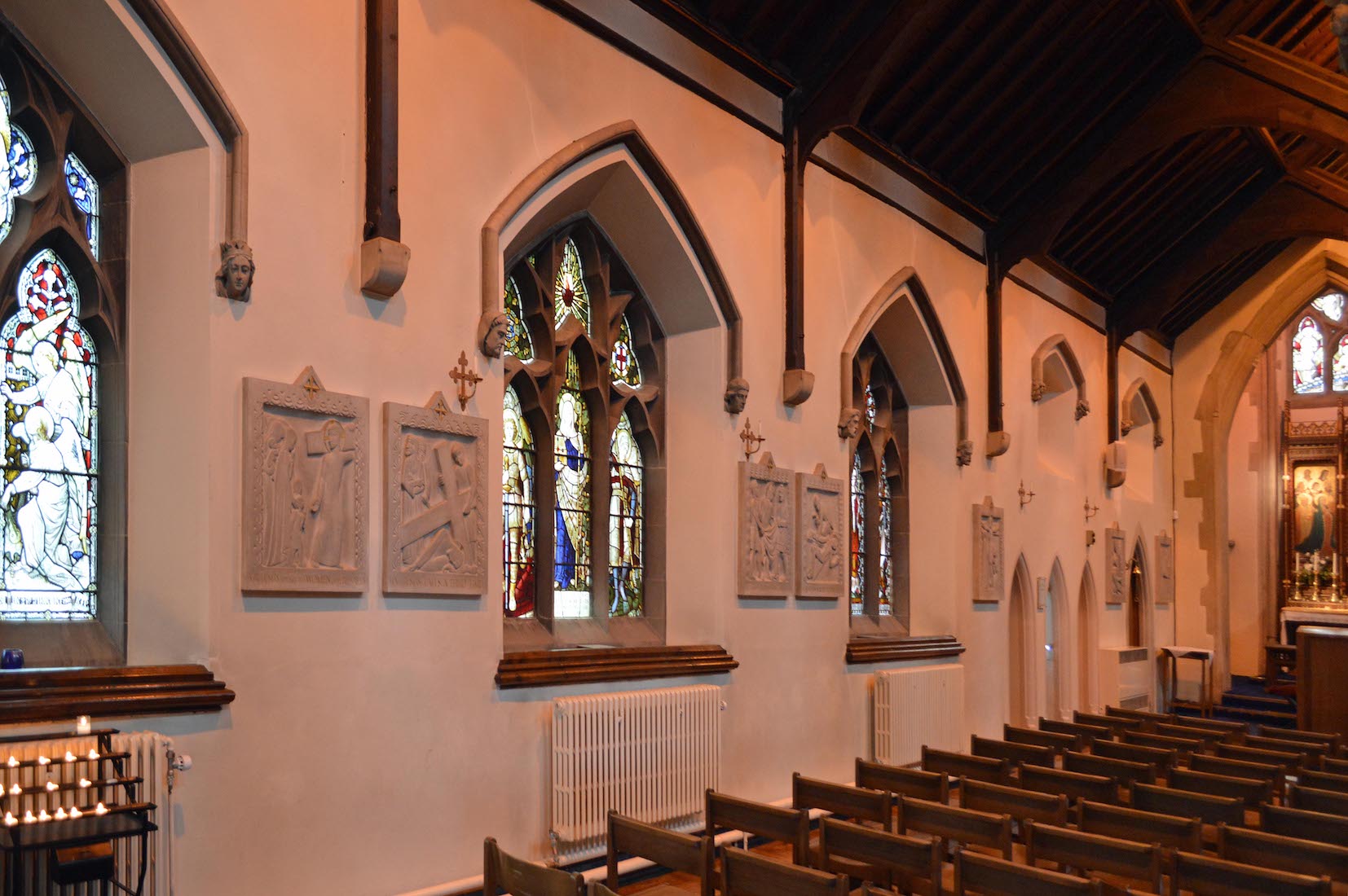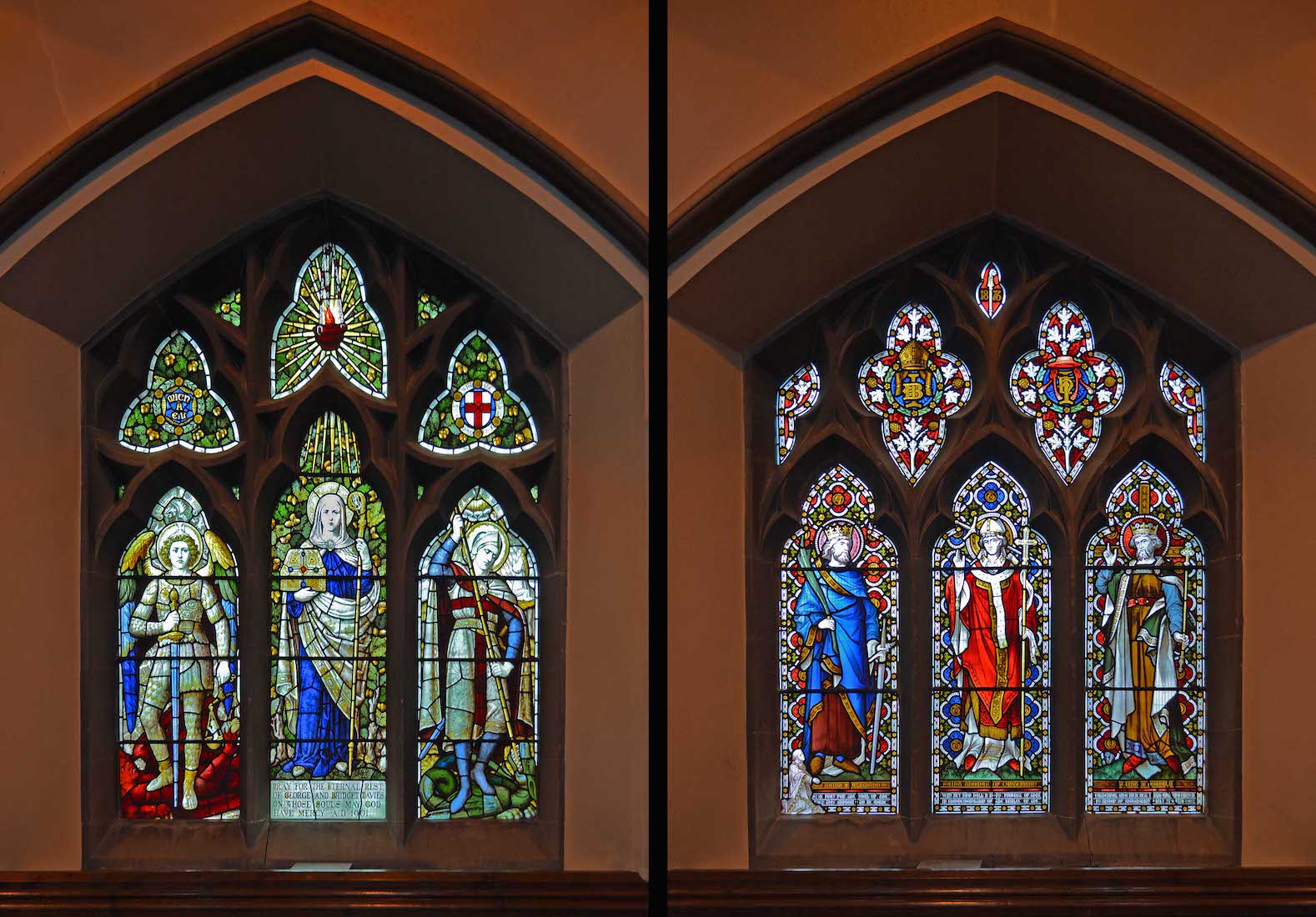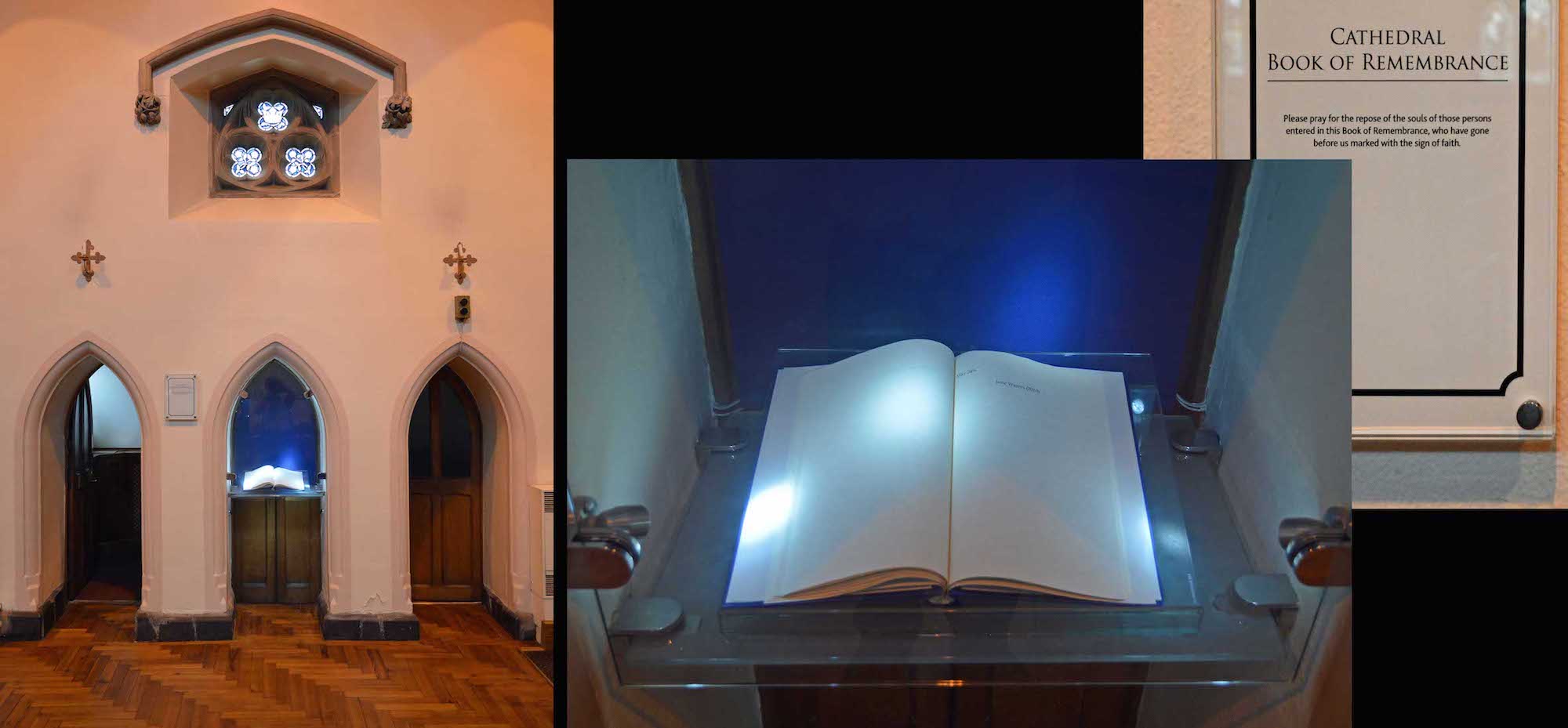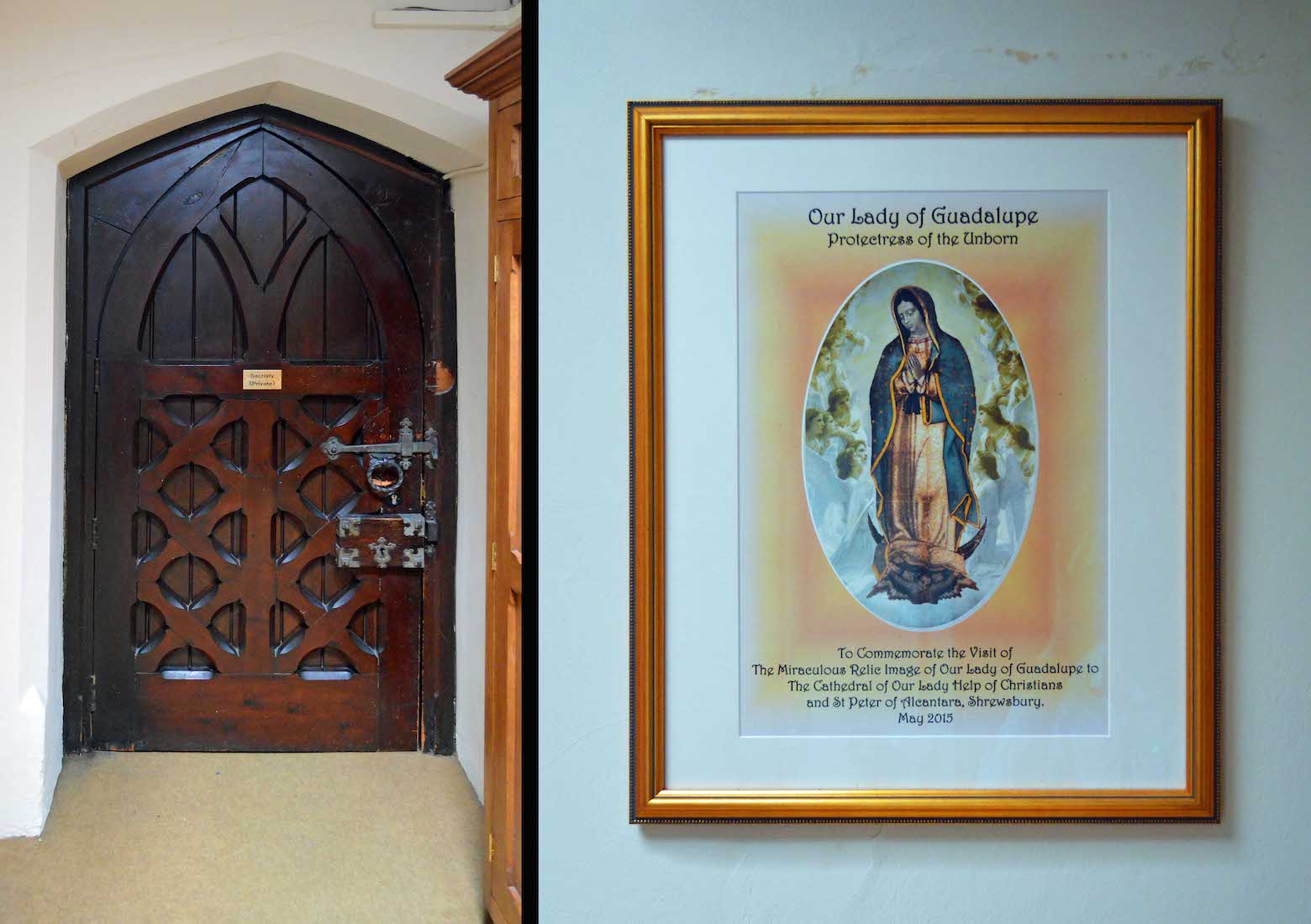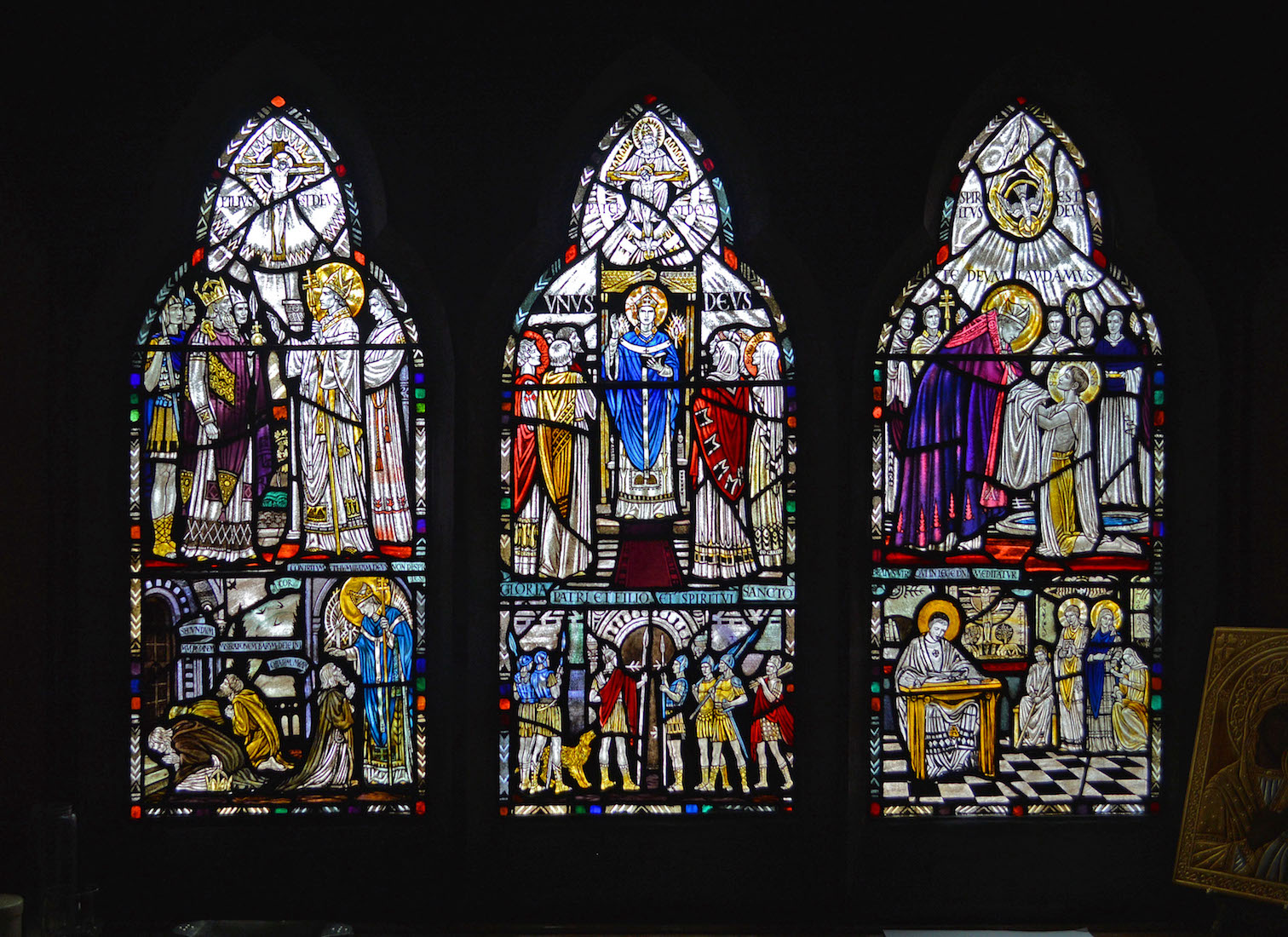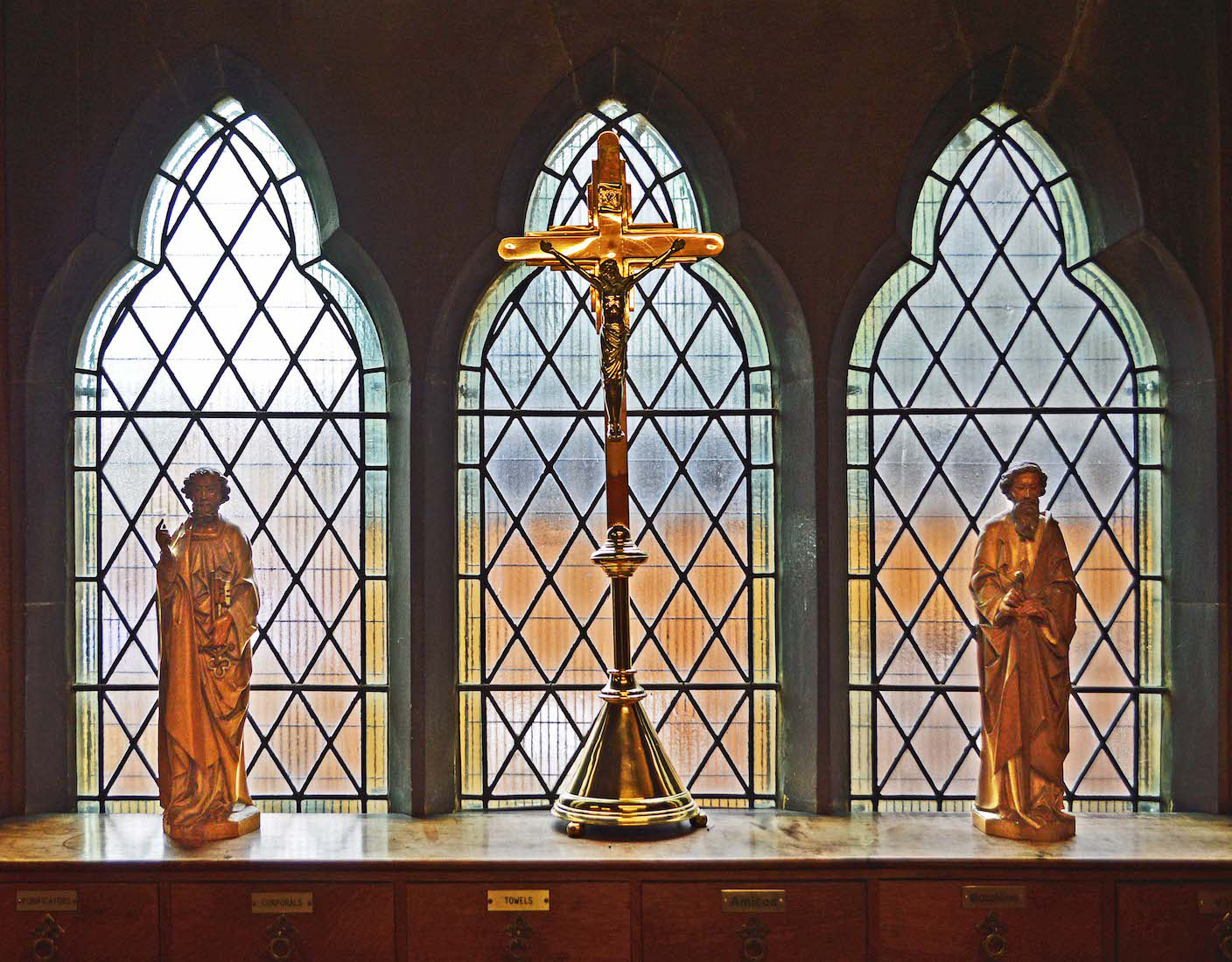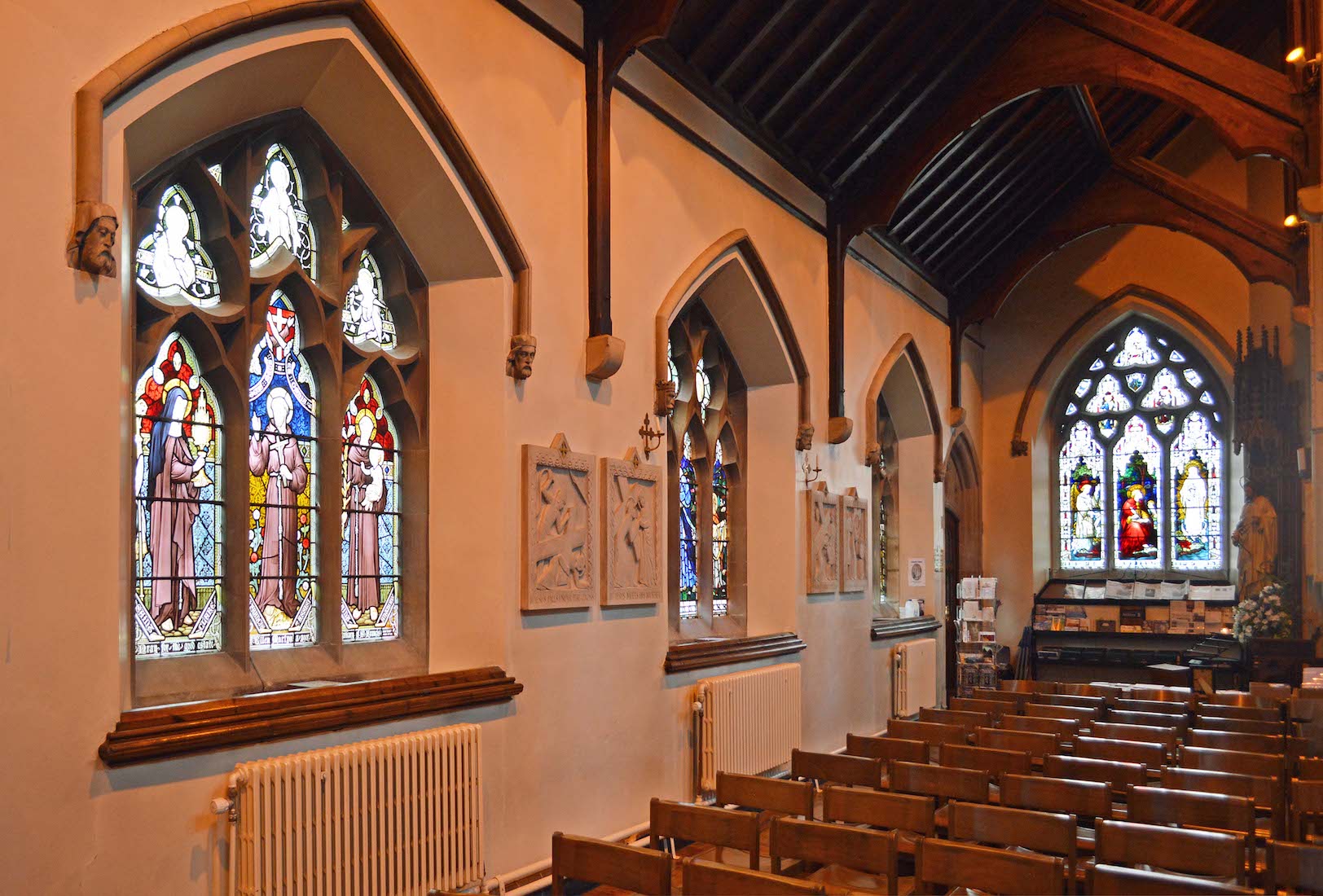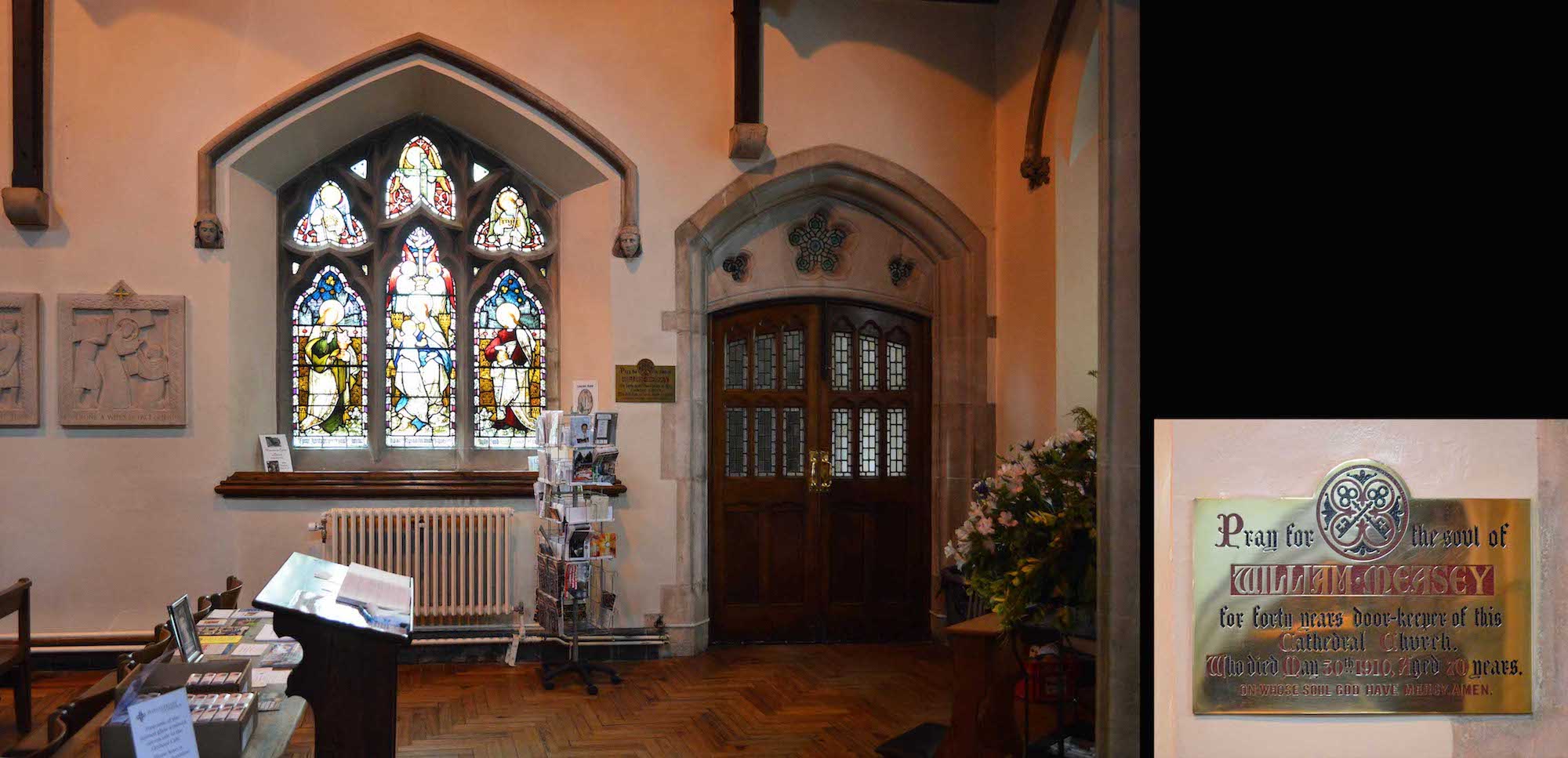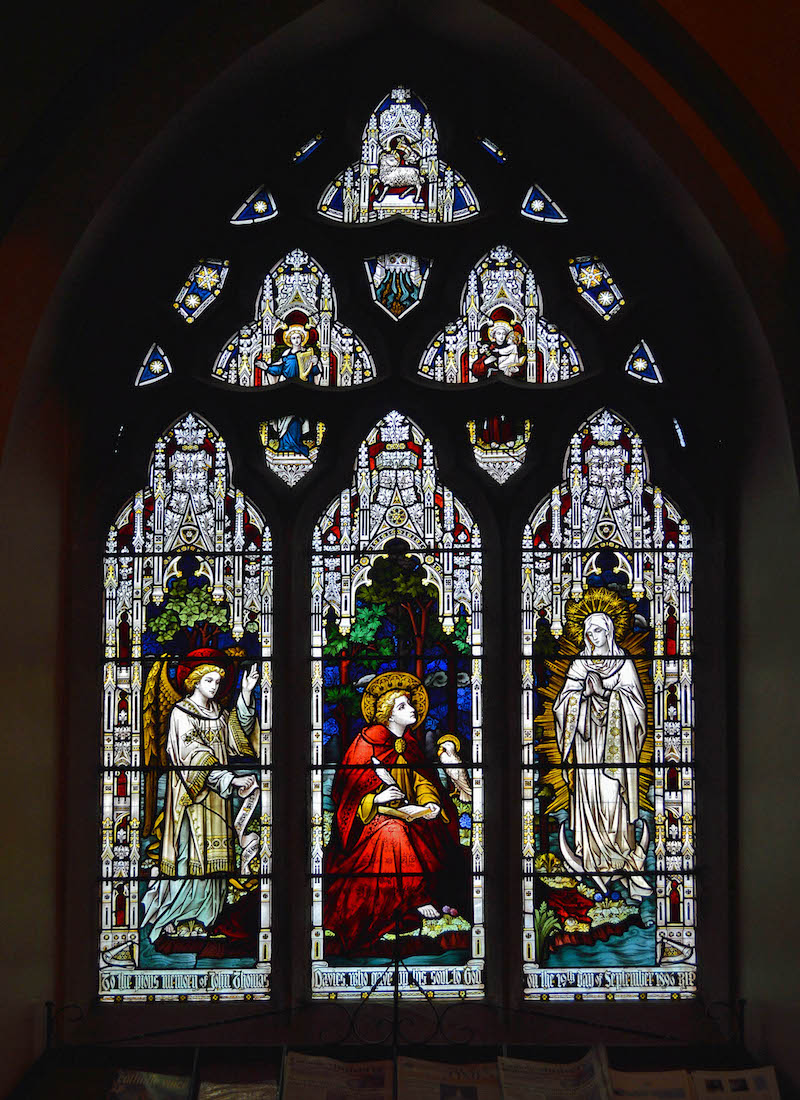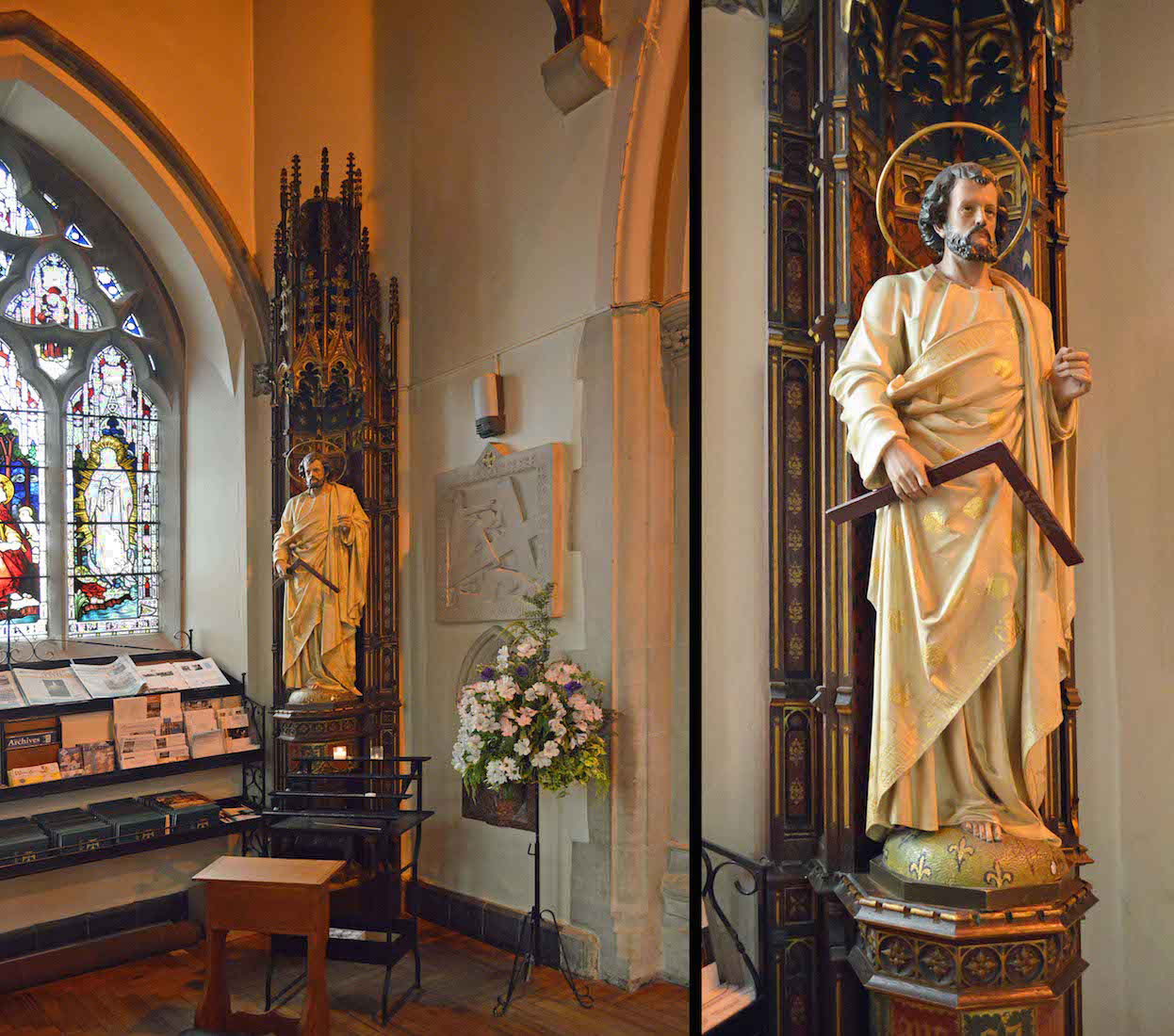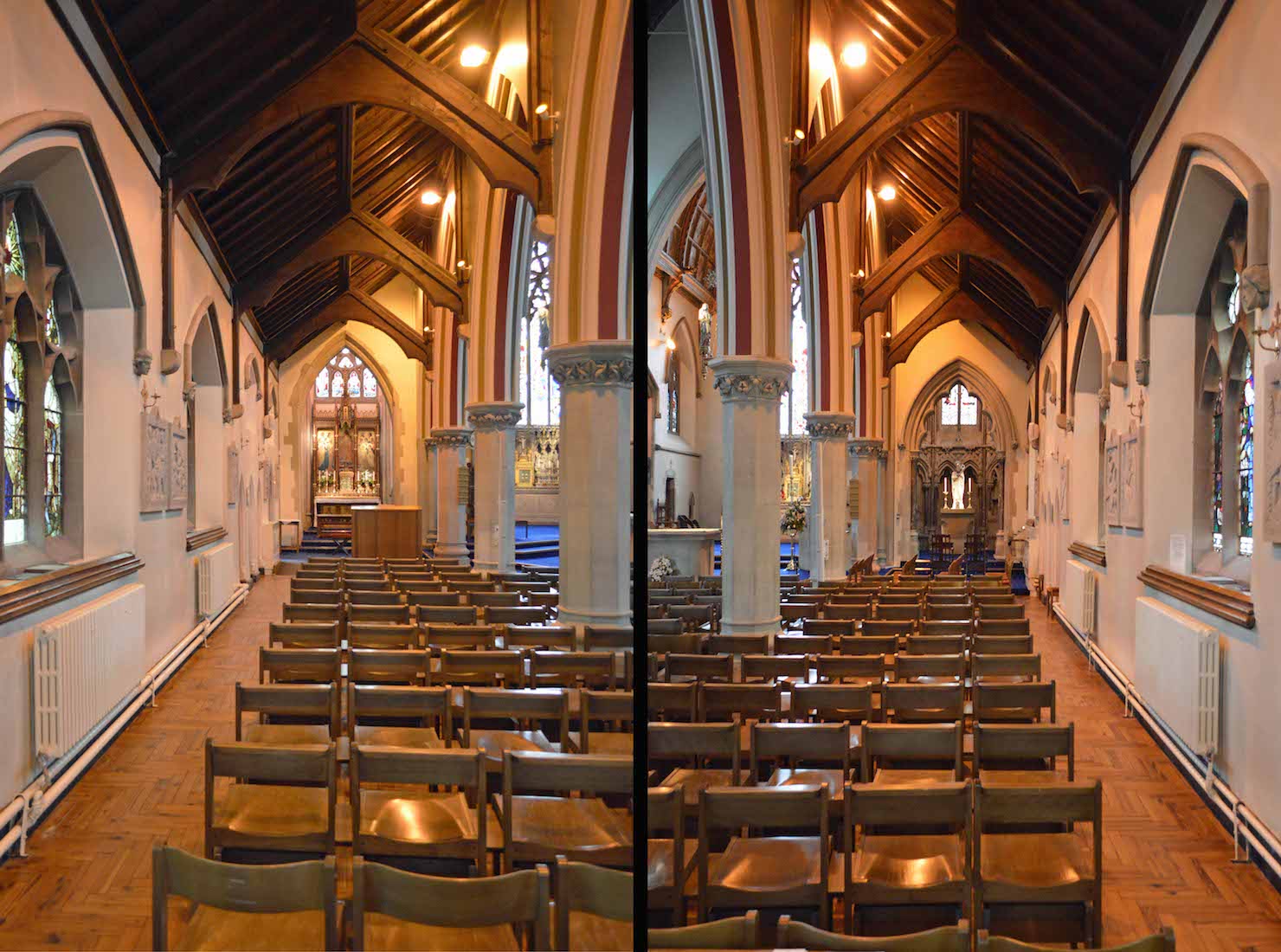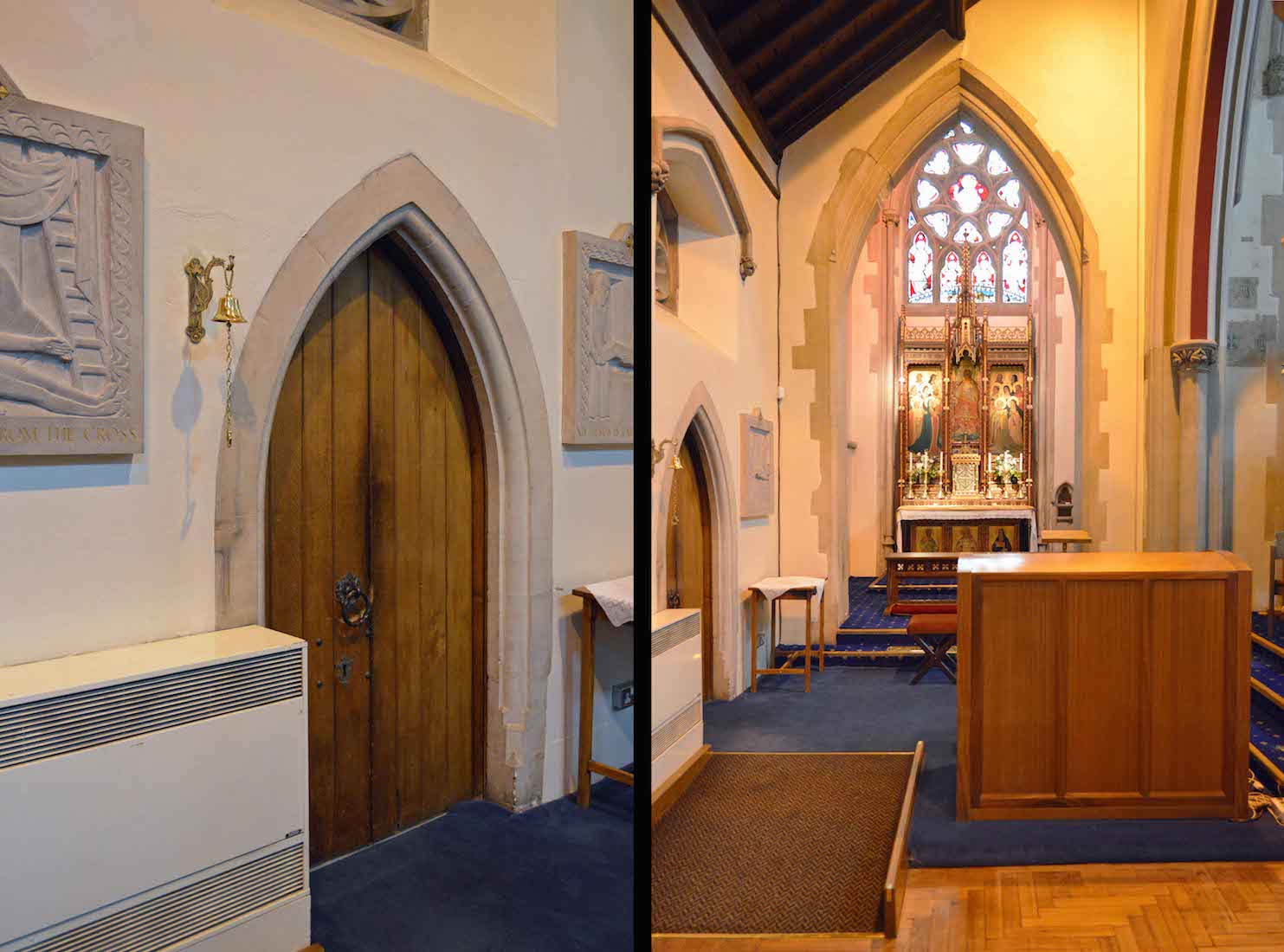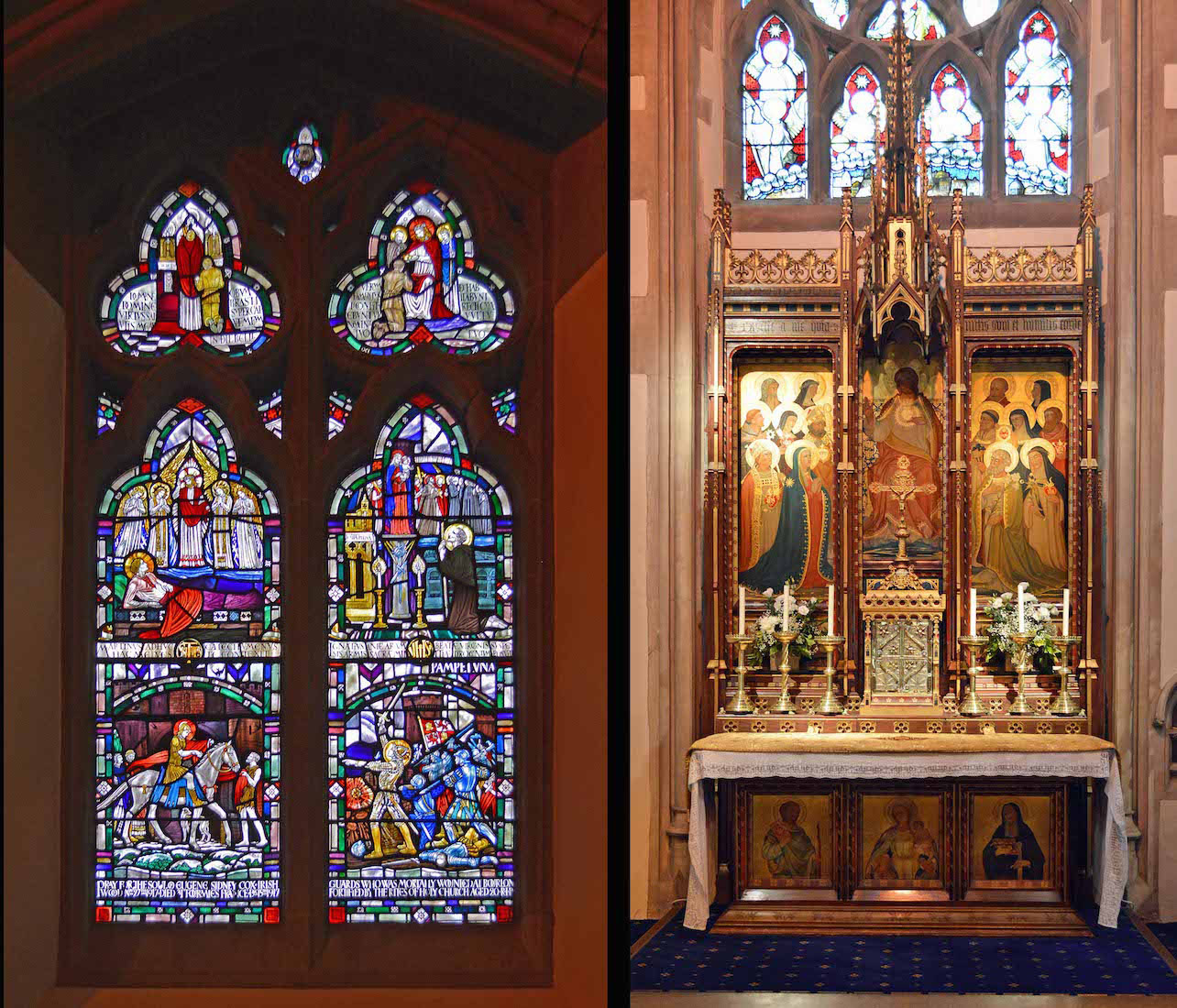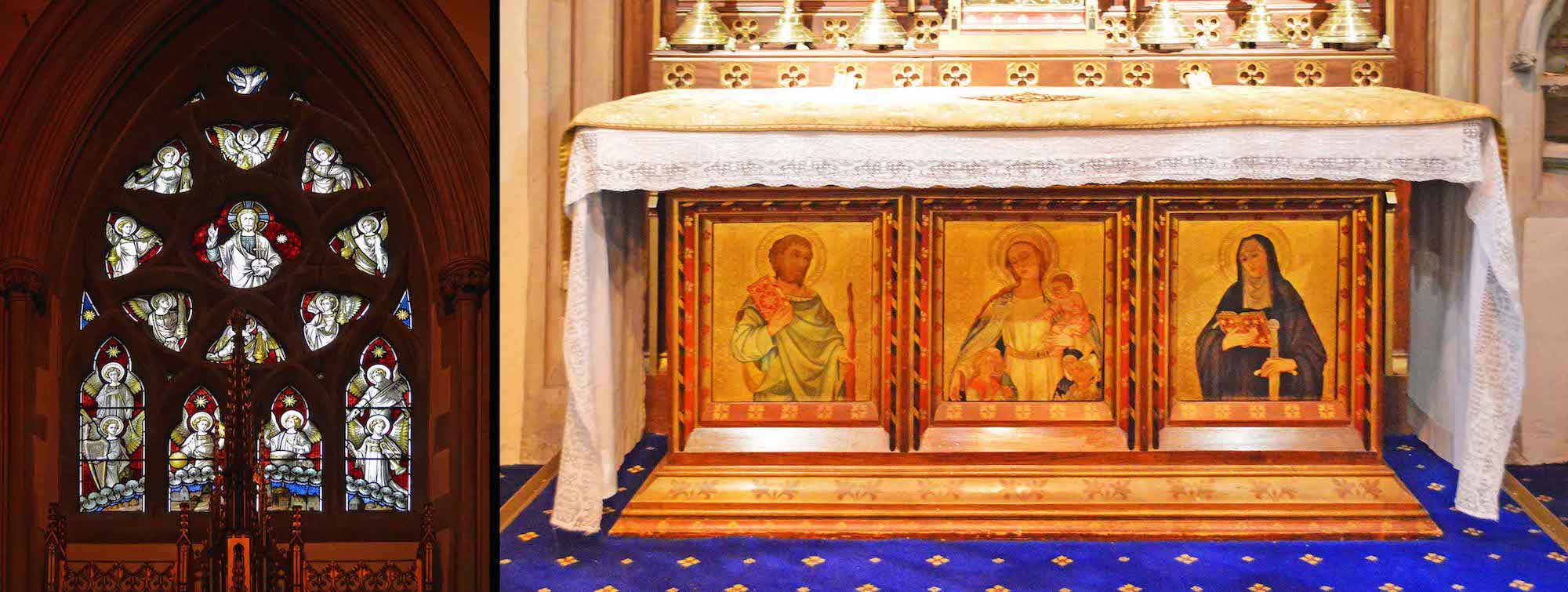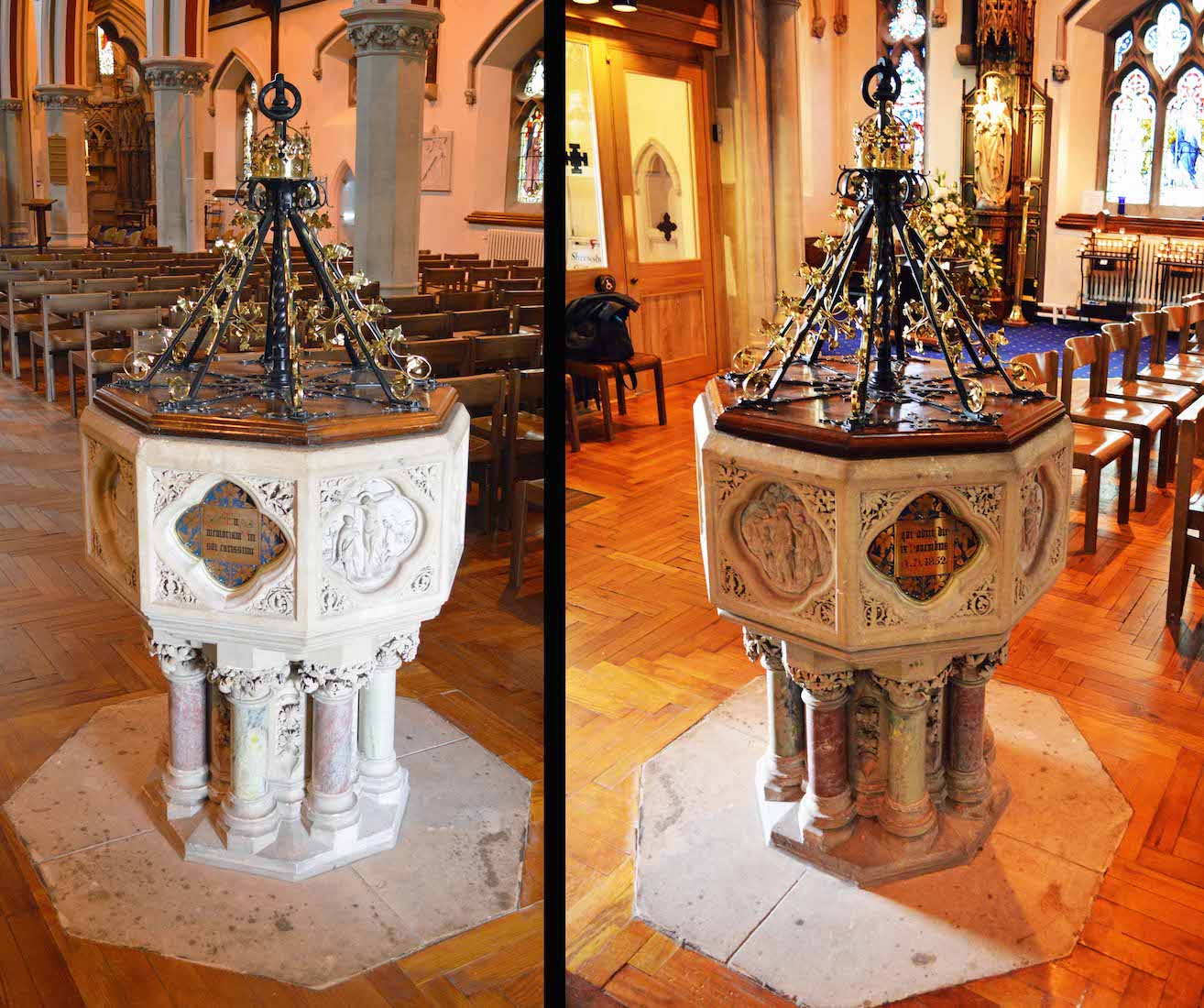
The font is of solid octagonal construction, supported by short columns. It is capped by a removable decorated wooden lid. Baptism is regarded as the rite of initiation into the Christian life and the Christian Church: for this reason it is often placed near the entrance of a church or cathedral. In fact, the font stood in the Northwest corner of the nave until a reordering in 1984. INDEX
22. NORTHWEST CORNER
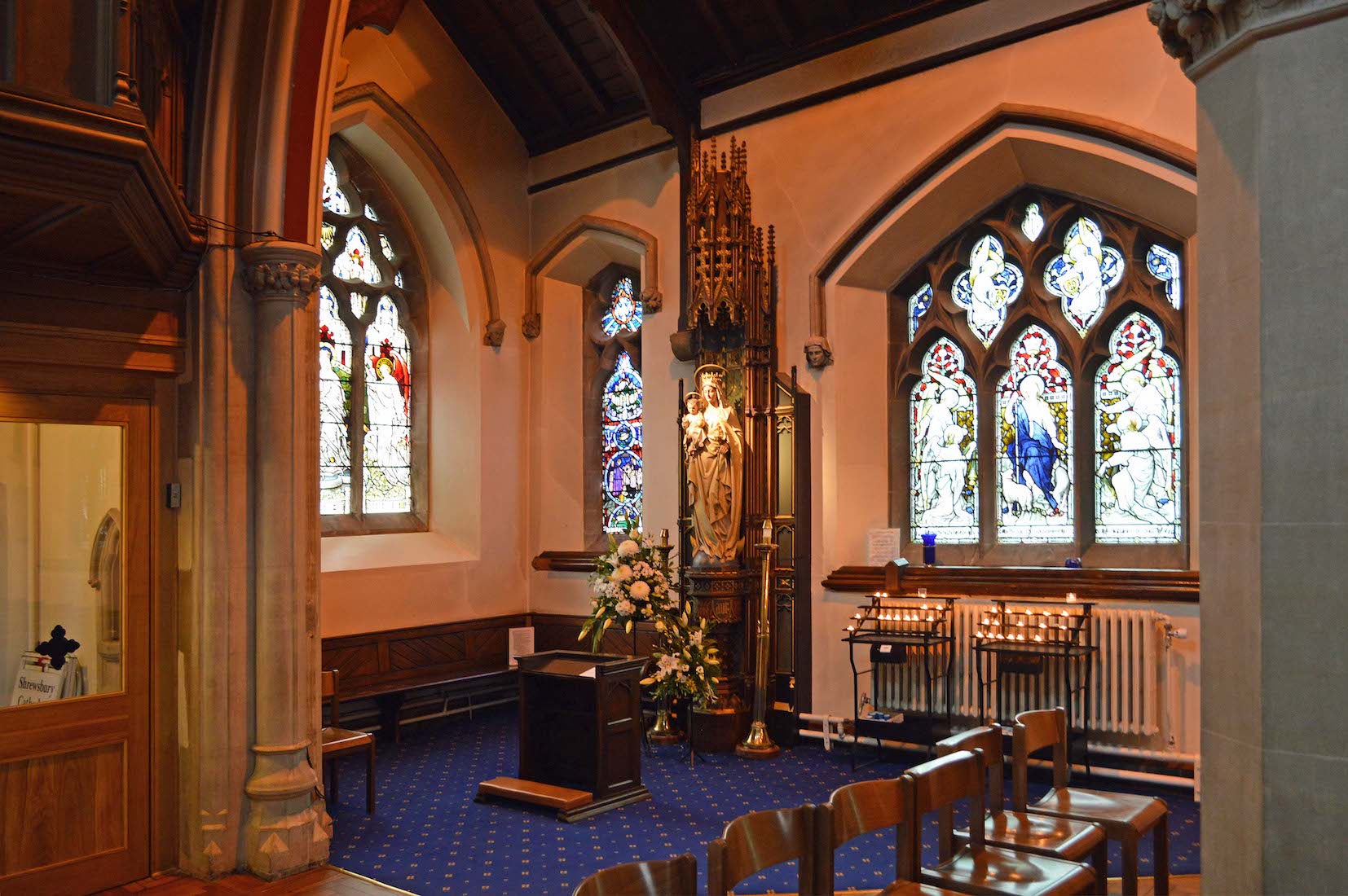
This is a closer view of this corner of the nave. Catholic churches tend to have three chapels: a Sacred Heart Chapel, a Lady Chapel, and a Blessed Sacrament Chapel. Although unusually placed, this appears to be the Lady Chapel of this Cathedral.
23. NORTHWEST CORNER WINDOWS
The small central window is the Baptistery Window. Called ‘City of God’, it is by Margaret Agnes Rope. The delightful windows on either side form a matching pair. At left is the Virgin and Child Window. At right St Winifride(?) with lambs. Angels look on from the sides in both windows.
24. VIRGIN AND CHILD
The focus in this corner is the statue of Virgin and Child. Mary is crowned and holds a staff. The baby Jesus holds an orb representing the world, and gives the sign of blessing.
25. NORTH NAVE WALL
Leaving this corner, we look along the North nave wall. There are a number of Stations of the Cross lining the walls, and two near stained-glass windows. Beyond them are three small arched doors. And we just catch sight of the end chapel.
26. STATIONS VIII – XII
Shown here are five of the 14 Stations of the Cross, showing the journey that Jesus made to the Cross. These are simple engravings which tell the story in a quiet restrained way. The Stations are an aid to meditation, particularly around Easter time. These Stations were made in 1953 by the Catholic sculptor Philip Lindsey Clark.
27. NORTH WINDOWS
The detailed window at left is the St Winifride Window. It shows the Saint with Archangel St Michael at left and St George at right, both in acts of combat! St Michael is holding an interesting balance on his left hand. The window at right shows St Alkmund (of Derby), St Thomas of Canterbury, and St Oswald.
28. ARCHES, REMEMBRANCE BOOK
These three narrow arches serve different purposes. The arch at left is a doorway leading through to the sacristy. The central arch contains a Book of Remembrance in which names are recorded of congregational members who have died. And the right arch leads through to a confessional.
29. TO THE SACRISTY
The sacristy is where priests prepare before a service. It is a private area and not generally open to the public. I was fortunate that a very enthusiastic older lady was on welcoming duty the day I visited, and she showed me inside. In fact I have very positive memories of my visit to this Cathedral as a result of this welcomer! The framed picture shows Our Lady of Guadalupe, Protectress of the Unborn. It commemorates the visit of the Miraculous Relic Image of Our Lady of Guadalupe to the Cathedral of Our Lady Help of Christians and St Peter of Alcantara, Shrewsbury, May 2015.
30. SACRISTY WINDOW
This window is one of seven in the Cathedral designed by Margaret Agnes Rope. It shows scenes from the life of St Ambrose. Aurelius Ambrosius, better known in English as Ambrose, was an Archbishop of Milan who became one of the most influential ecclesiastical figures of the 4th century.
31. SACRISTY CRUCIFIX
This little window setting in the sacristy has the crucified Christ at the centre with Saint Peter at left and St Paul at right. Peter holds the Keys of the Kingdom, and Paul his sword.
32. SOUTH NAVE WALL
We cross the nave to the South side. There are three stained glass windows on this wall with Stations of the Cross between, and a further window on the facing West wall. At the far end is another exit from the Cathedral, and opposite, a large statue.
33. SOUTH NAVE WINDOWS
The left window, with its unusual colouring, depicts St Clare, St Francis of Assisi, and St Anthony of Padua. The next window, the Visitation Window by Margaret Rope, comes with extensive documentation. The window at right is something of an enigma, with images of the Nativity and the Coronation of Mary blended together.
34. SOUTH NAVE DOOR
Next to the South door is a brass plaque remembering William Measey, who was door-keeper in the Cathedral for forty years –a worthy record! Notice too the heads looking out near the top of the window – and, in fact, all the windows.
35. WEST WALL WINDOW
This is the St John Window. It shows St John the Evangelist, identified by his eagle, and with an accompanying angel, receiving a message from the Virgin Mary.
36. ST JOSEPH STATUE
Opposite the South door is this shrine to St Joseph, pictured holding a setsquare from his carpenter’s shop.
37. NAVE SIDE AISLES
The two side aisles … . We cross back over to the North side of the Cathedral and make our way down the North side aisle to the Sacred Heart Chapel.
39. CHAPEL WINDOW, ALTAR
The window by Margaret Rope shows scenes from the lives of St Martin of Tours and St Ignatius of Loyola. St Martin cut his cloak in two to share with a beggar, and St Ignatius founded the Jesuits. The painting in medieval style in this Chapel was done by the artist J. A. Pippet in 1885.
40. TOP WINDOW, ALTAR
The window is the Adoration Window: it shows the Risen Christ surrounded by worshipping angels. I am unsure of the identities of the altar figures.


